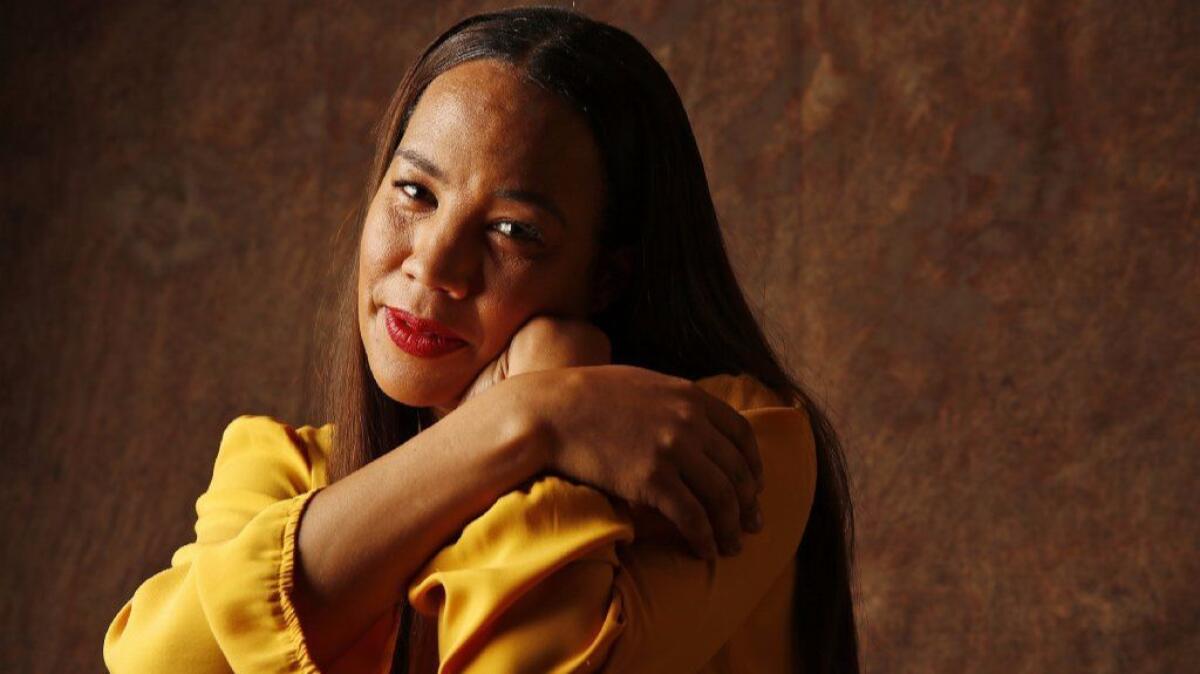Melissa Leo and Maggie Betts examine the life of nuns and the changing church
Not to say playing Reverend Mother in the nuns-in-training drama “Novitiate” was the answer to Melissa Leo’s prayers, but …
“To play a nun … it was a lifelong ambition,” the Oscar-winning actress says of the 1960s-set new film. “I was brought up without religious anything in my home. I guess, because of being on the outside of this huge thing that Catholicism is, that has touched my life in many ways over the years, it’s a fascination with someone who makes that kind of commitment. That is what faith is.”
Always in impeccable diction, Leo makes clear that neither the extremely strict nun, nor the actress’ next role, atheist Madalyn Murray O’Hair in “The Most Hated Woman in America” (her court case helped end official Bible readings in public schools), are particularly close to her. Then again, neither were her Oscar-nominated turn in “Frozen River,” nor her winning role in “The Fighter,” she says.
“I like to play women with different motivations [than mine]. The harder woman for me to play is the woman closer to me.”
But her Reverend Mother is nothing if not complex. The matriarch to novice nuns, including one of ethereal beauty to whom everything seems to come easily (Sister Cathleen, played by Margaret Qualley), she hasn’t left the convent in four decades. She’s charged with “teaching these teenage girls something more important to her than life itself,” says Leo, but happens to be doing it just as the tsunami of reforms known as Vatican II is about to smash into the church. That, and her absolute commitment to her marriage to a silent husband — God — which seems to be falling apart, help explain why she goes from sweet-voiced guidance to cold cruelty in a flash.
“She has devoted herself to an unrequited love,” says “Novitiate” writer-director Maggie Betts. “For all intents and purposes, her man is walking out the door as this institution is completely diminishing her. She is the voice of God to these young women; she has to speak on his behalf, and he’s not talking to her anymore.”

Video Q&A’s from this season’s hottest contenders »
Betts’ first feature, which opened in limited release two weeks ago, came to her by “accident,” she says. Apparently randomly grabbing biographies at airports can work pretty well for writers as Betts picked one up on Mother Teresa just to have something to read.
“It was this incredibly painfully intimate collection of letters she had written that were obsessively consumed with her relationship with the great love of her life, her husband … God. Everything she was saying felt so familiar to me in terms of all the ups and downs and emotional extremes I’d been through in my many years of being in love and out of love.
“At the heart of this was the question of how much of love is a projection. Because if her relationship with a nonhuman entity is as complex and difficult and layered and specific as my most intense love relationships have been, then how much of these relationships that mean so much to us is being self-generated?
“I started doing research. There’s this whole canon of ex-nun memoirs that came out in the ’80s and ’90s. They’re focused on two things: Their time in the novitiate and the impact of Vatican II.”
Betts says Leo was the first actress she wanted for the key role of Sister Cathleen’s mentor/antagonist.
“Melissa, 120%, lives her work,” Betts says. “When somebody lives it that truthfully and authentically, even if they’re not doing the same thing you envisioned in the script, it becomes undeniable.”
Even now, when Leo talks about Reverend Mother, she forcefully defends the character’s point of view and methods.
“Her relationship with God and Jesus is fully satisfactory,” she says. “It’s with Vatican II that men change the status of what she has taken to be The Truth. It’s not an idea that she’s wedded to God, not to her.”
Despite Reverend Mother’s occasional emotionally brutal behavior toward her charges, Leo is clear as her perfect enunciation that the character behaves without ego.
“It’s much more than mean, much deeper than that. Imperative! Yes. But teenage girls — you’ve got to make them listen somehow. When she says, ‘You may consider mine to be the voice of God,’ does she consider herself to be God?” Here she utters a strong expletive for emphasis. “… no. And I use that word on purpose.”
See the most read stories this hour »
More to Read
From the Oscars to the Emmys.
Get the Envelope newsletter for exclusive awards season coverage, behind-the-scenes stories from the Envelope podcast and columnist Glenn Whipp’s must-read analysis.
You may occasionally receive promotional content from the Los Angeles Times.











